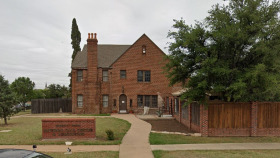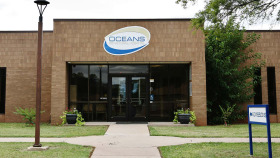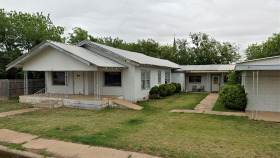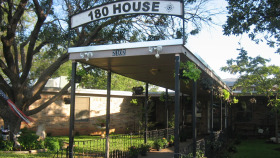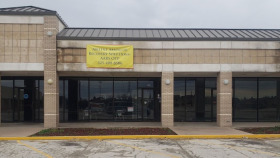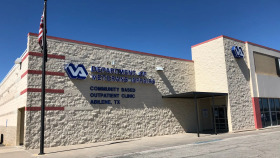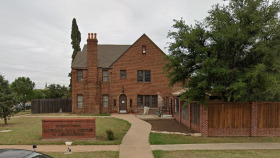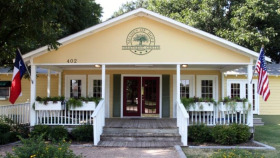Expert Insights
Naloxone (aka Narcan), a fentanyl-reversing drug, is now available without a prescription. Since
young adults are very susceptible to drug experimentation and drug use, college kids should be informed about this potentially life-saving product. One new Texas nonprofit, LIVEGY, is doing just that. They’re also making access to naloxone easier for students. LIVEGY provides
universities, colleges, fraternities, and sororities wall fixtures holding naloxone packets, that are
then mounted in the hallways. Such a great idea!~ Rita Milios
Alcohol and Drug Abuse Statistics in Abilene, TX
The rate of drug and alcohol-related deaths has remained stable in some parts and dropped in many others around Taylor County, the seat of Abilene. Here are some statistics about Taylor County and the State of Texas:1,7,8
9,654 rehab admissions in Texas in 2019 were for alcoholism
2,566 rehab admissions were for cocaine addiction, both powder cocaine and crack cocaine
There were 237 drug overdose deaths in Taylor County in 2020
How to Pay for Alcohol and Drug Rehab in Abilene
Low-Cost Options
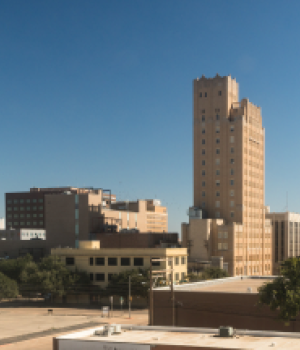 There are several ways to fund rehab, such as picking a low-cost program, finding a treatment center that offers payment plans or loans, and crowdfunding.
There are several ways to fund rehab, such as picking a low-cost program, finding a treatment center that offers payment plans or loans, and crowdfunding.
There are agencies devoted to offering free and low-cost services for people in need. Places such as the WTCR Methadone Clinic of Abilene offer methadone maintenance programs and accept Medicare and Medicaid for the cost of care. You can also look to the Salvation Army Abilene Corps, which may be able to offer low-cost services.
Using Medicaid, Medicare, or Private Insurance
If you’re low-income, disabled, or over 65, you could qualify for Medicare or Medicaid to pay for care. These programs have strict requirements, such as annual income and age.
Private insurance companies, including Blue Cross Blue Shield of Texas, Aetna, United Healthcare, and Superior HealthPlan, are legally required to pay for the cost of participating in a Texas program under federal Mental Health and Substance Abuse Equity laws.
Cost Varies According to the Level of Care
Your costs will be largely based on the type of rehabilitation center. There are two main types of programs, inpatient and outpatient.
Inpatient rehab is the most comprehensive form of addiction care available. It provides a structured environment and rigid daily schedule to help you learn positive habits to replace your negative ones and focus on healing. In addition, inpatient programs usually have an alumni program for graduates to continue with aftercare services, including ongoing therapy and support groups.
A step down from inpatient is a partial hospitalization program (PHP), which is an intensive day treatment option. These programs offer daily medical supervision and treatment in an accredited addiction treatment center and are an excellent low-cost alternative to inpatient rehab.
Intensive outpatient programs (IOPs) offer three to five treatments per week, depending on the facility you choose. Therapies vary at each center, but you can expect to participate in individual and group therapy as well as medication-assisted treatment (MAT) as needed.
Standard outpatient programs (SOPs) are similar to IOPs but with a once- or twice-weekly schedule. SOPs tend to require participants also attend a community-based support group, such as a local AA or NA meeting, or SMART Recovery group.
Low-Cost and Free Drug Rehab Centers in Abilene
If you don’t have access to health insurance, are underinsured, or are low-income, you could qualify for care at free Abilene drug rehabs or in low-cost programs. Agencies such as Texas Health and Human Services can offer assessments, screening, and referrals to nearby low-cost centers.
If you’re low-income, you could qualify for Medicaid, a state-funded health insurance program. Medicaid covers many services, including medication-assisted treatment (MAT), individual and group therapy, and co-occurring mental health disorder and substance use disorder (SUD) therapy. There are two state-funded drug and alcohol rehab centers in Abilene, both outpatient facilities.5 Abilene also has a state-funded center for those participating in court-mandated programs, with room for 60 participants.6
Traveling for Drug and Alcohol Rehab in Abilene
Transportation and Lodging
Getting to Abilene is fairly simple, as it has easy access to the 20 highway and nearby 277 and 351 highways. If you prefer to fly in, the Abilene Regional Airport connects to DFW and partners with American Airlines.
There is plenty of temporary lodging if you’re only visiting for a short time, including several large hotel chains such as Hilton and Marriott. Abilene has all the amenities you would expect from a Texan town. There are four post offices in the city, 19 grocery stores and markets, more than 20 primary schools, and a dozen large medical centers.
Attractions
If you’re wondering how to spend your free time in Abilene, you can visit one of the 14 family-friendly attractions, such as the various museums, the Abilene Zoo, and the Adamson-Spalding Storytime Garden.
There are also 10 libraries, five movie theaters (including the Town & Country drive-in), 10 greenhouses, and three golf courses. All of this is in addition to the wealth of natural beauty and fun in the great outdoors, with Lytle Lake in the east part of town, Kirby Lake in the south, and 20 local outdoor park areas.
Texas Alcohol and Drug Laws
Texas lawmakers have enacted the following laws regarding substance use:1,2,3,4
Texas Good Samaritan Overdose Prevention Statute: This law is designed to encourage Texas residents to seek emergency medical attention during an overdose situation. It protects individuals who call 911 for assistance with a suspected overdose from prosecution for possession of certain controlled substances (if they have not called 911 for an overdose in the preceding 18 months).
Sandra Bland Act: This law provides for rehab for individuals arrested or convicted of non-violent crimes. Per this statute, Texas criminal justice officials must work to identify people with suspected substance use concerns and divert these individuals to an appropriate treatment facility rather than incarcerate them.
Texas Protections for Employees Seeking Addiction Treatment: Under the Family and Medical Leave Act (FMLA), Texas employees who voluntarily seek alcohol and drug treatment may be eligible for time off work for this treatment. The Americans with Disabilities Act (ADA) also provides some protections for employees who seek addiction treatment
Marijuana Laws: Texas law is among the strictest in the country regarding marijuana. Recreational use and growth are illegal, and medical use is legal but heavily regulated. Penalties for use, growth, possession, or sale of marijuana range from 180 days in jail and a $2,000 fine to life imprisonment and a $50,000 fine.
Resources
- Center for Disease Control. (2022). CDC Wonder.
- U.S. Department of Labor. (2022). Family and Medical Leave Act.
- Texas Department of Health Services. (2018). Overview of Drug Overdose Good Samaritan Laws.
- State of Texas Legislature. (April 22, 2015). SB 1462.
- Texas Health and Human Services. (2022). Substance Use Service Locations.
- Community Supervision and Corrections Department, Taylor, Callahan & Coleman Counties. (2022). Substance Abuse Treatment Facility (SATF).
- Center for Disease Control. (2022). U.S. County Opioid Dispensing Rates, 2019.
- Substance Abuse and Mental Health Services Administration. (June 2021). Treatment Data Set (TEDS) 2019.


